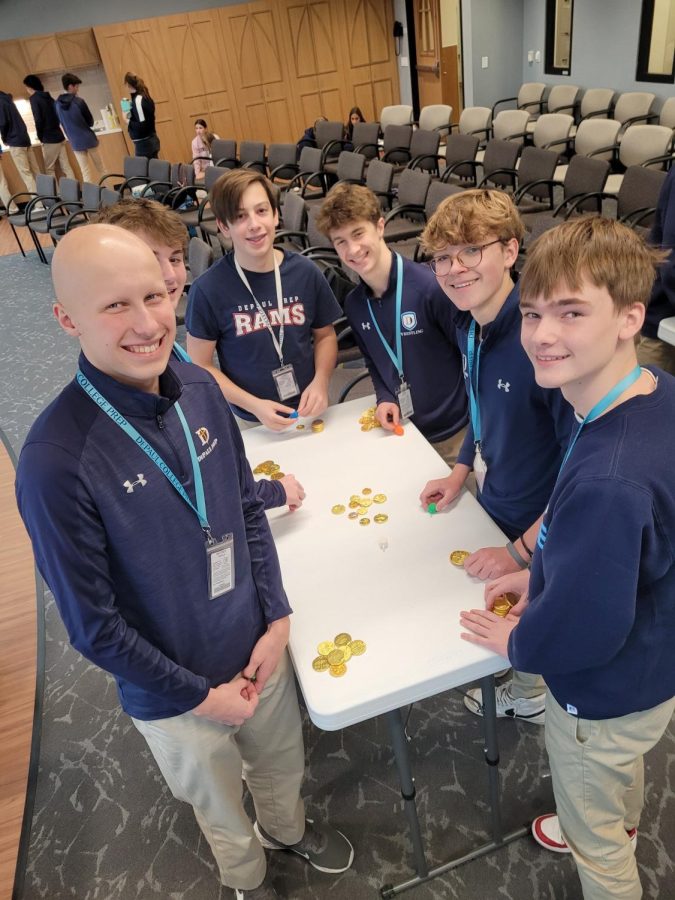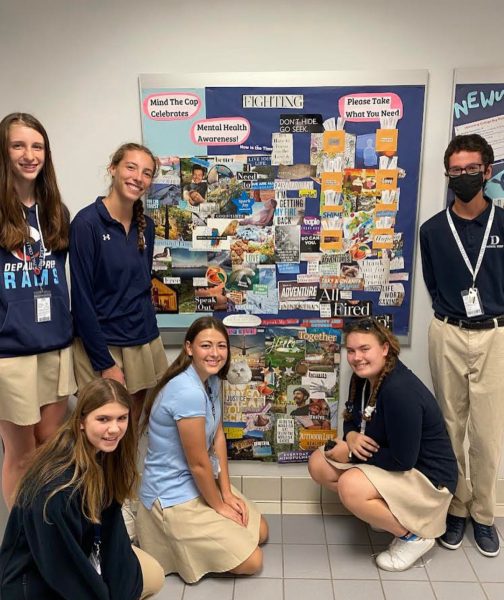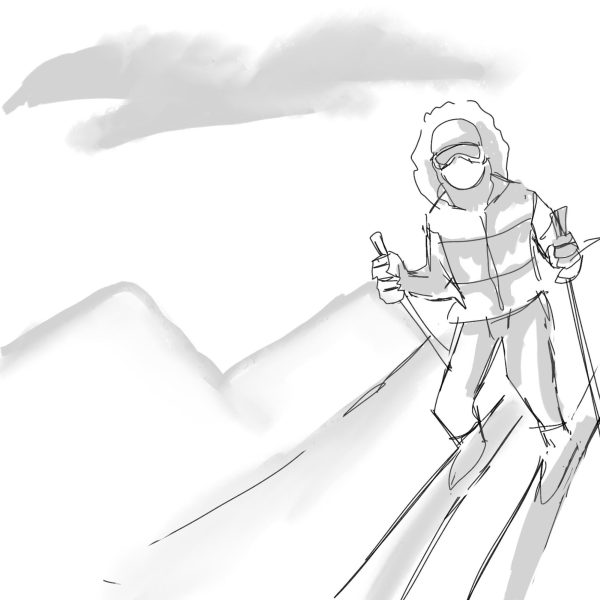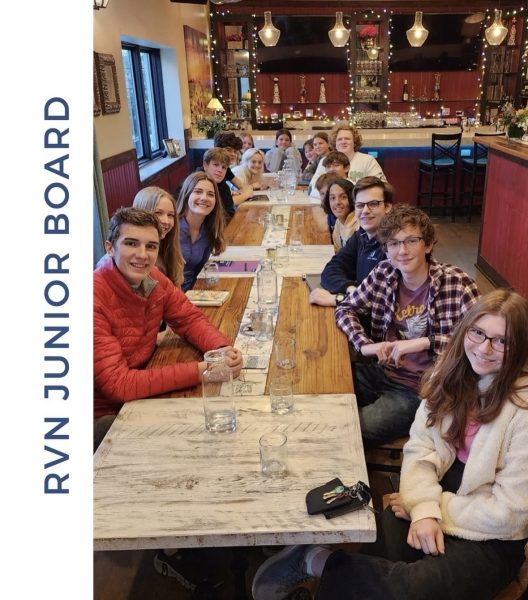Clubs started by students becoming essential to DePaul Prep’s co-curricular scene
Students participate in a dreidel competition during an event for Jewish Club, one club created by students this year.
There are over fifty co-curriculars at DePaul Prep and at least six of them have been started by students.
Charlie and Max Greenburg have started the Jewish Society, Dimitri Govas started the Greek Club, Fiona Scanlan started Women in Stem, Erin Utley and Joe Flynn started the Climbing Club, Marina Martinez started the Penship Club, and Yada Rosario started the Baking Club, just to name a few.
The term “Co-Curriculars” is used because of the different types of activities students can participate in. At DePaul Prep, the Co-Curriculars are broken down into Academic Teams, Honor Societies, Affinity and Alliance Organizations, and Student Publications.
Students join co-curriculars based on their interests, and since DePaul Prep has many students with many interests, it is important to have a variety of co-curriculars so all students can be a part of the school community. Students can also start co-curricular based on their passions.
Erin Utley is a junior at DePaul Prep and has been climbing for about seven years. She decided to start the climbing club because it is something that she enjoys doing and wanted to share her passion with other people. Utley is currently co-captain with Joe Flynn and Ms. Flynn, Botany and Culinary Arts teacher, as their moderator.
The process to start the climbing club took about three months in total. Since Utley had colloquium with Mr. Petersen last year during second semester, she “mentioned just off hand that I was a climber and I was looking to start the climbing club and he’s the Dean of Student Life, so afterwards we had a preliminary conversation and he said if I could find a moderator then I could start it.”
Mr. Petersen, Dean of Student Life, says that the process to start a club is “both simple and challenging, depending on a few factors.” Clubs can be started in two ways: student driven or teacher driven.
If a teacher wants to start a club, there is always the question of whether there will be enough student interest. If a student wants to start a club, there is discussion about the purpose and mission of the club, and if there is a faculty or staff member available to moderate the club.
“Student driven clubs are more successful when there is a clear mission and the students who start the club are passionate and take time and energy to build it. Two clubs that match this most recently are our Jewish Club and Greek Club. These clubs have had strong student leadership to get them off the ground and they continue to grow and be successful,” said Petersen.
Since Utley knew both Ms. Flynn and Joe Flynn, she reached out to them and set up times to meet with Mr. Petersen to “iron out dates. We talked about what we actually would do and we had to communicate with First Descent, where we climb, to get a reduced rate because students are paying.”
The Climbing Club currently meets once a month on Thursdays and students will be able to learn the fundamentals as well as more advanced skills. The club currently has about 75 members. Erin hopes to keep the climbing club going through her senior year and hopes to keep it growing and teach people new skills.
As students start clubs, this shows a sense of leadership in the students and it shows students doing what they love, but also sharing it with others. Students are always free to start their own clubs.
“They provide an outlet for students to explore their passions outside of the classroom and offer an alternative to get involved outside of our many athletic teams that are also critical to our school culture,” Petersen added.
The co-curricular program has grown over the years, but the ability for clubs to meet during the school day has had an immense impact on student involvement.
As Utley said, “I think that if you really want to, you should just go for it and you should just try it out. It’s a very easy process and if you really want to do something, the school is very accommodating about it.”








Olessia • Feb 22, 2023 at 19:28
Very informative!
Ivy Frater • Feb 22, 2023 at 08:25
Great article!